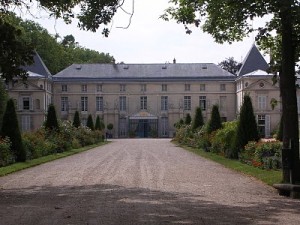More for ‘Downton Abbey’ Fans
Posted on January 22, 2012 at 8:00 am
Can’t get enough of sumptuous British estates with their proper servants and silver tea services? Check out Secrets of the Manor House on PBS, premiering tonight at 8/7 central and it will stream in its entirety beginning January 23.
One hundred years ago the British manor house was in its heyday, sheltering families of enormous wealth and privilege within its stately walls. But what was really going on behind closed doors, where these wealthy families and their poor servants coexisted? Shot on location at some of Britain’s finest estates and country houses and featuring interviews with contemporary masters and the servants, the series reveals that life in the manor house was a world unchanged for almost a thousand years. By the time the 20th century entered its second decade, mounting financial, political and social pressures would alter the world of the Edwardian aristocrat forever.
The program includes some of the great homes with commentary from some of the premiere historians of the Edwardian era, including Lawrence James (The Illustrated Rise and Fall of the British Empire
). As he and others explain, by Edwardian times, the agricultural revenues of the great country estates were dwindling. With the Industrial Revolution, wealth began moving away from agriculture and into manufacturing and banking. While the easiest solution would have been to sell some of their land, the practice of entailment demanded that estates be passed on intact. Many aristocrats, finding themselves in need of cash, married rich American heiresses in a trend that was quietly called “cash for titles.” As historian Dr. Elisabeth Kehoe (Fortune’s Daughters
) recounts, among the many American heiresses who married into the aristocracy was Jennie Jerome, who wed the second son of the Duke of Marlborough and was mother to Winston Churchill.
Rumblings of change were also coming from below stairs. Those who served the lords and ladies led backbreaking lives of non-stop work for little pay and less freedom. Thousands of working-class Edwardians left these country estates to make their way across the sea to America, hoping for a better life and more freedom in the land of opportunity. When hundreds of these would-be immigrants, traveling in second and third class, perished in the sinking of the Titanic, the inequity of the British class system was shown to the world in all its ugliness.
It lasted for hundreds of years, based in a rigid class system, an agriculture-based economy, and strict laws of inheritance. All of that would come to an end with the two World Wars. Even the most passionate Anglophiles would not want to return to those times….but it is delicious to visit them in “Downton Abbey” and in shows like this one.


I just found your blog this afternoon. Thanks for posting about Downton Abbey, which we love.
We produce Catholic and Christian animation for kids; is there a way to send you one of our new, Brother Francis, animation DVDs for your consideration. I think you will enjoy it. Please visit: brotherfrancisonline.com
Blessings,
Larry
larry@herald-inc.com